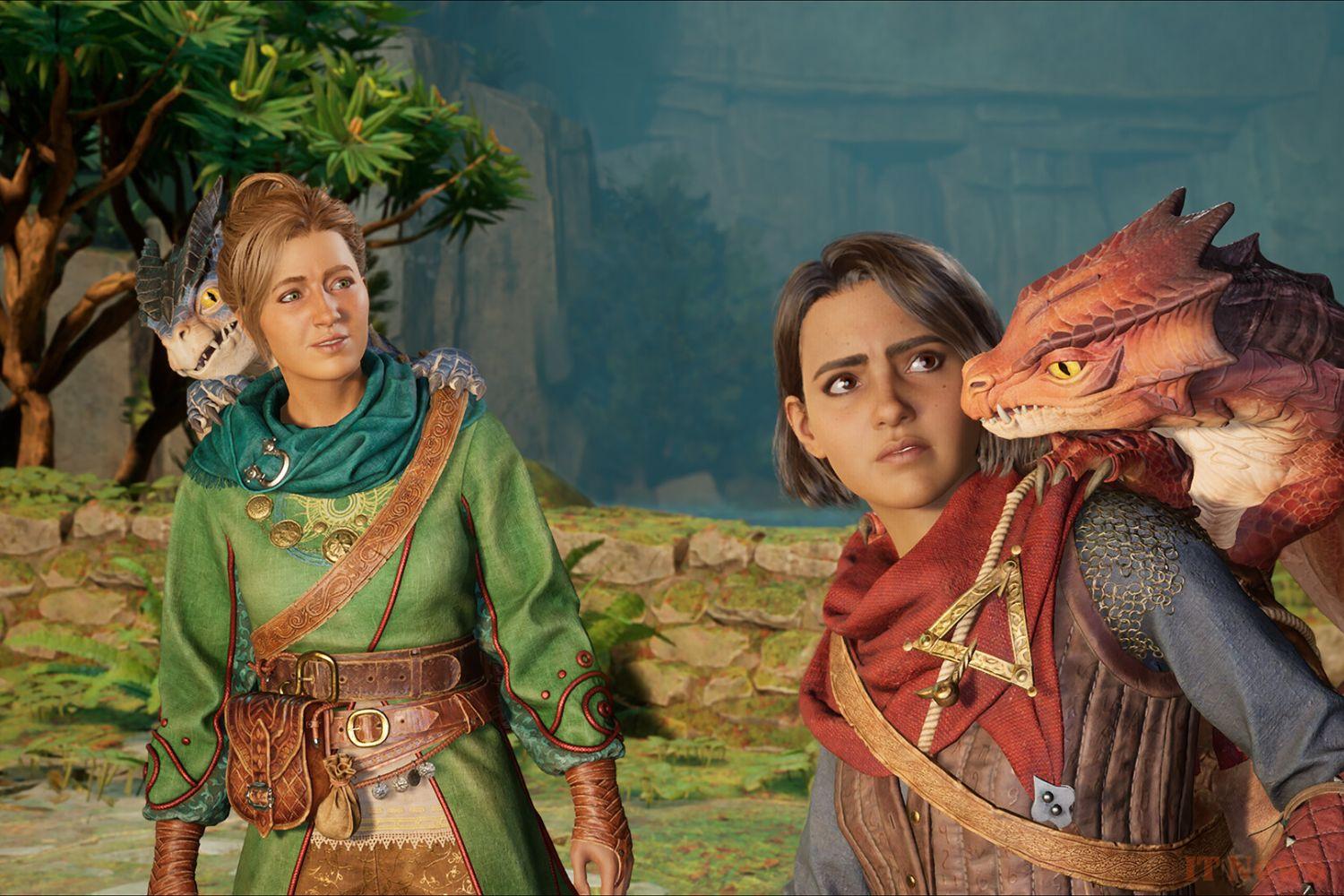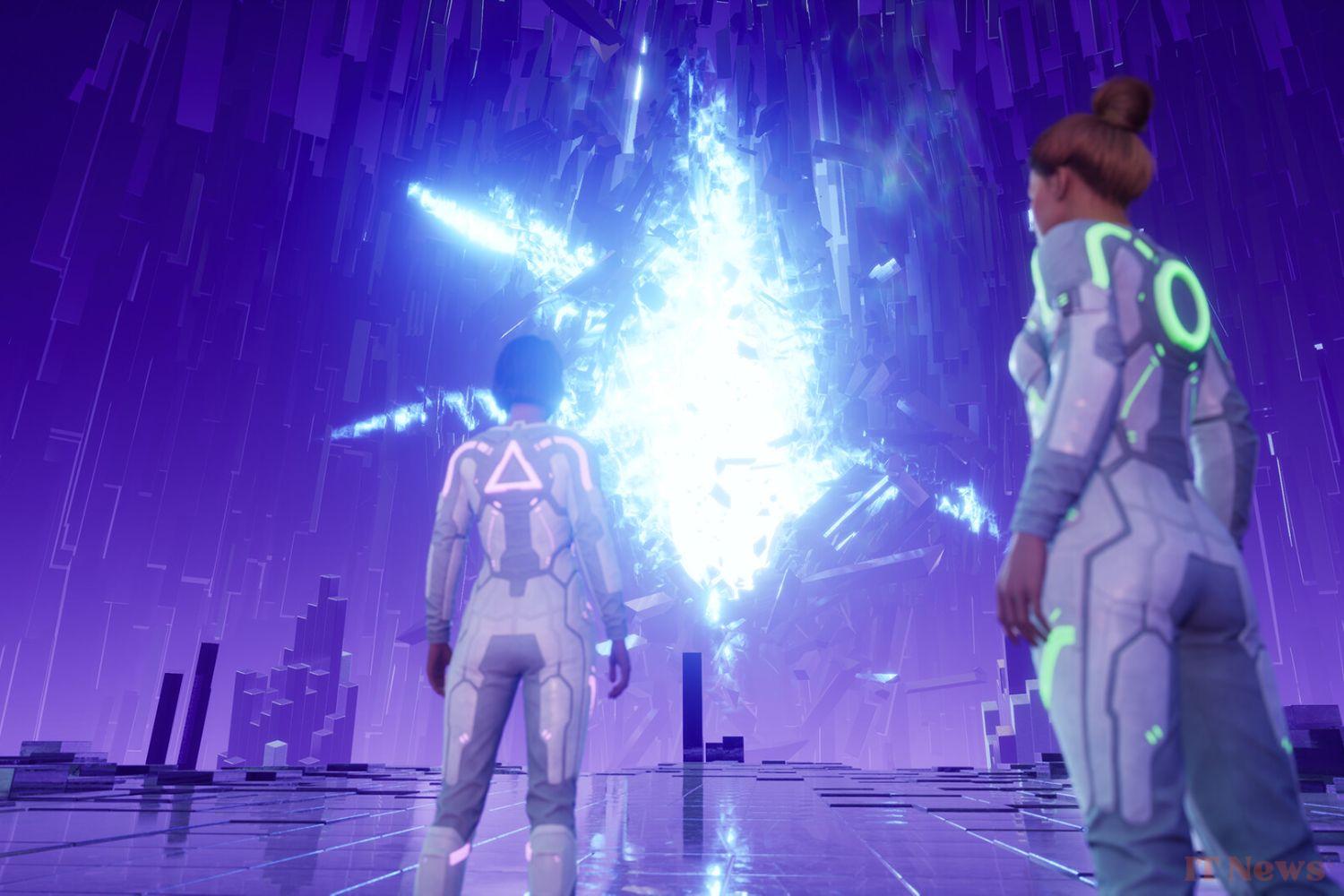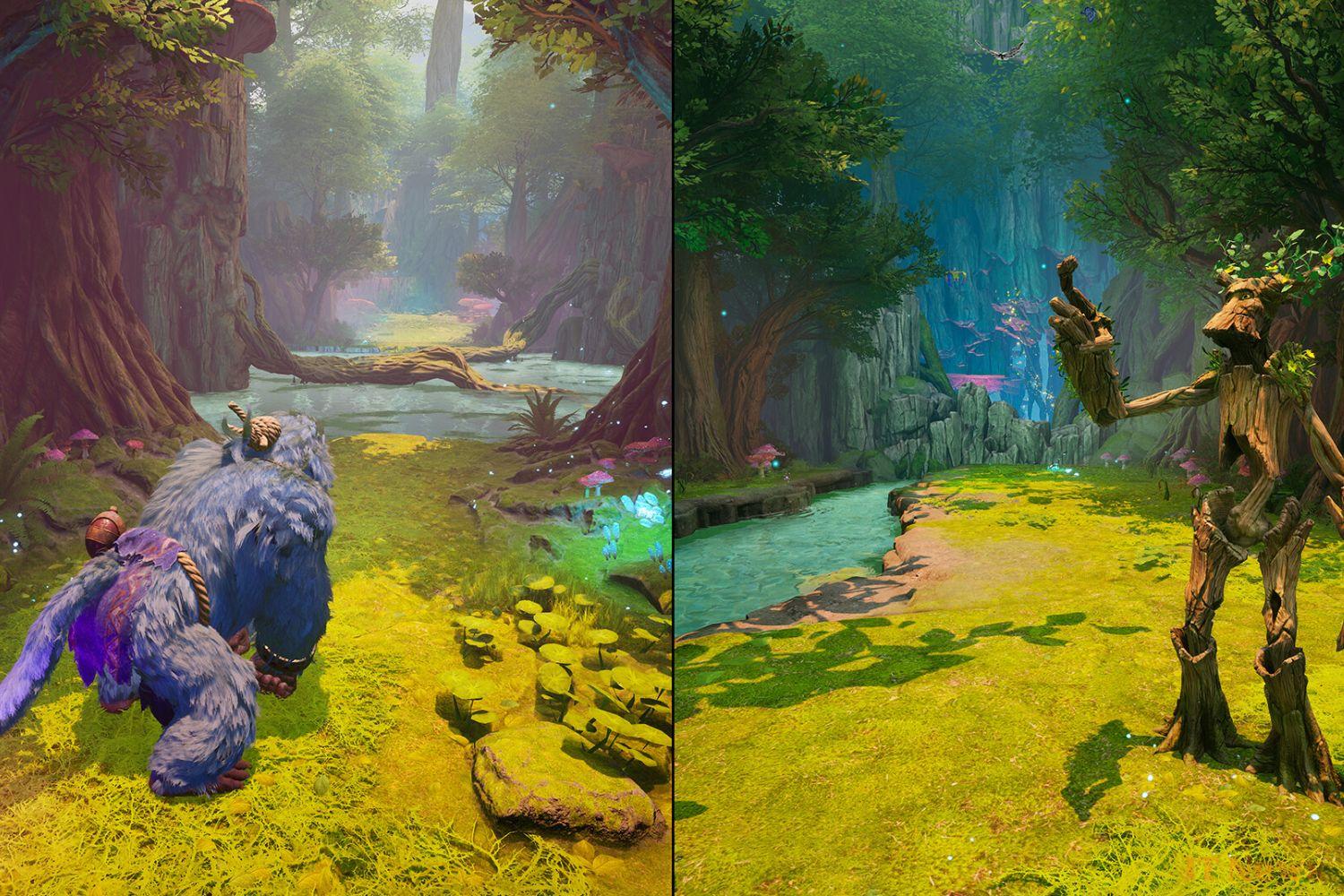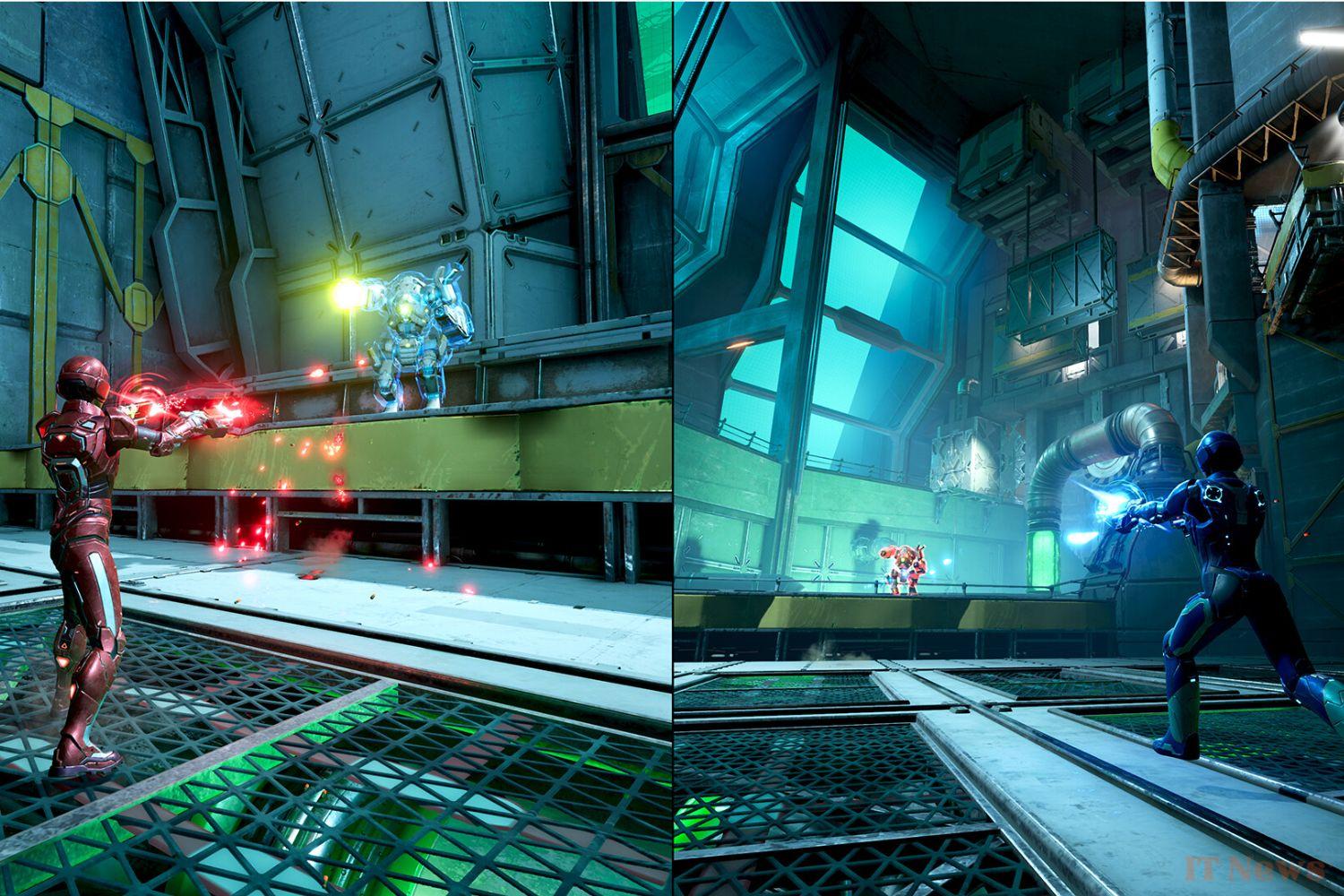How else can we describe Split Fiction than as the game coming to us from the studio behind It Takes Two? That's how it was presented to us by Electronic Arts when it was announced, and it's one of the main selling points put forward by the Hazelight studio, which owes much of its fame to the game released in 2021. Four years later, the teams hope to repeat its success with a completely different title, based on the same principle of two-player cooperation.
Imagined by Josef Fares, Split Fiction centers its story on two young writers hoping to sell their books to a major publishing house. But the latter is much more interested in the possibility of stealing their ideas directly from the source, rather than financing them. Zoe and Mio therefore find themselves stuck in a high-tech machine simulating their literary universes and will have to help each other get out unscathed. A scenario juggling science fiction and fantasy that is enough to make our mouths water. But is the game as good as it seems? The answer in this review of Split Fiction.
The Ready Player One of video games
A science fiction author and a fantasy author meet, and in spite of themselves give birth to the most anticipated cooperative game of the year. On paper, Hazelight's new opus has everything going for it. The themes addressed speak as much to geeks as to the general public and the promise of an epic adventure for two is a project that often attracts all types of players, from the most novice to the most experienced.
Dragons, explosions, cyberpunk and magic coexist in a game that we find a little less condensed than we thought, but which is full of surprises. Each level has a visual richness to offer that the others don’t, and it’s a real pleasure to discover what the worlds have to offer us as we go along. Contemplation is more emphasized in Split Fiction as the studio takes a more realistic artistic direction than for It Takes Two.
Visually, Split Fiction hits hard. The graphic quality of the game is not a determining factor in the fun that we have or not, but players with a developed artistic sense will appreciate the beautiful settings as well as the many references that populate the title. The immersion is also musical with magnificently composed scores that adapt perfectly to the universes that we explore. We will not reveal the details, but some panoramas are really worth a look, while several stories have managed to touch our child's soul.
Mio and Zoe, standard-bearers of their respective genres, are two strong young women who defend science fiction and fantasy with all the passion they can muster. It’s interesting to indirectly take part in the debate, not through arguments, but rather through interactive practical demonstrations.
We played and we (almost) split up
The whole advantage of playing a game in “couch” co-op is being able to communicate directly with the other player. By default, the characters you play are in opposition to each other. But the narration often helps them get closer, collaborate and even like each other at the end of the game. Split Fiction generates just the right amount of disagreements to keep the adventure fun while being divisive. We bicker, but we also have some extremely funny moments, while learning to communicate better with our playing partner over the course of the events.
On this point, we find all the experience of Josef Fares and the Hazelight teams who work miracles when it comes to bringing players together. Zoe and Mio have two very different personalities. Besides the fact that one is attracted to fantasy, and the other to science fiction, one is pragmatic while the other is more of a dreamer. But they both have their share of personal worries and their way of dealing with them on a daily basis. These differences are felt in the expression of their character, but also in the gameplay.
Split Fiction approaches its story with a split screen and asymmetrical gameplay. Each player has a different power than the other, and no one can generally advance without mutual help. Those who have played It Takes Two should not expect a revolution. Many mechanics have been reused or modified to stick more closely to the universe of Split Fiction, but very few are truly original or innovative ideas. The game lacks real moments where asymmetry is pushed to its maximum and where the paths differ from one character to another. That said, we appreciate the maturity of the opus, which allows itself deviations in the worlds of racing, shooting and simulation games.
Split Fiction: could it do better?
It's ambitious, it's daring, but it's ultimately a bet that will only half win on our side. Indeed, we note a certain disparity between the treatment of science fiction and that of fantasy in the game. If the gameplay is always diverse, the SF universes are drastically less varied than the fantasy universes, and we regret the lack of imagination in the design of the genre and its technical possibilities. We have lost count of how many dystopias with metallic or spaceship decors we have crisscrossed, or even how many killer robots we have defeated.
The inequality is also felt in the length and interest of the chapters that make up the work. A bit repetitive at the beginning, the game takes off with a bubbling narrative center, before falling back slightly in the last part. The lifespan makes up for it a bit, with a good ten hours of play in sight.
Finally, if we love finding all the muses who inspired Josef Fares in the design of the game, we get tired of the game of 7 differences that takes place throughout the game. There is only one step between homage and pale copy, and we are not sure that Split Fiction always knows how to place itself in the right category. In itself, nothing seriously unpleasant, if not the unfortunate feeling of déjà vu that sometimes taints the very original and singular legacy of It Takes Two.
It Takes Two is also a game that we can warmly recommend even today at its launch price. This is not necessarily the case for Split Fiction which lacks identity and that je ne sais quoi that made its predecessor a reference of the genre. By trying too hard to be inspired, the game struggles to establish its own individuality. Split Fiction remains a very good game for those who want to spend funny and exciting evenings, but it will be less memorable than it was enjoyable at the time.






0 Comments